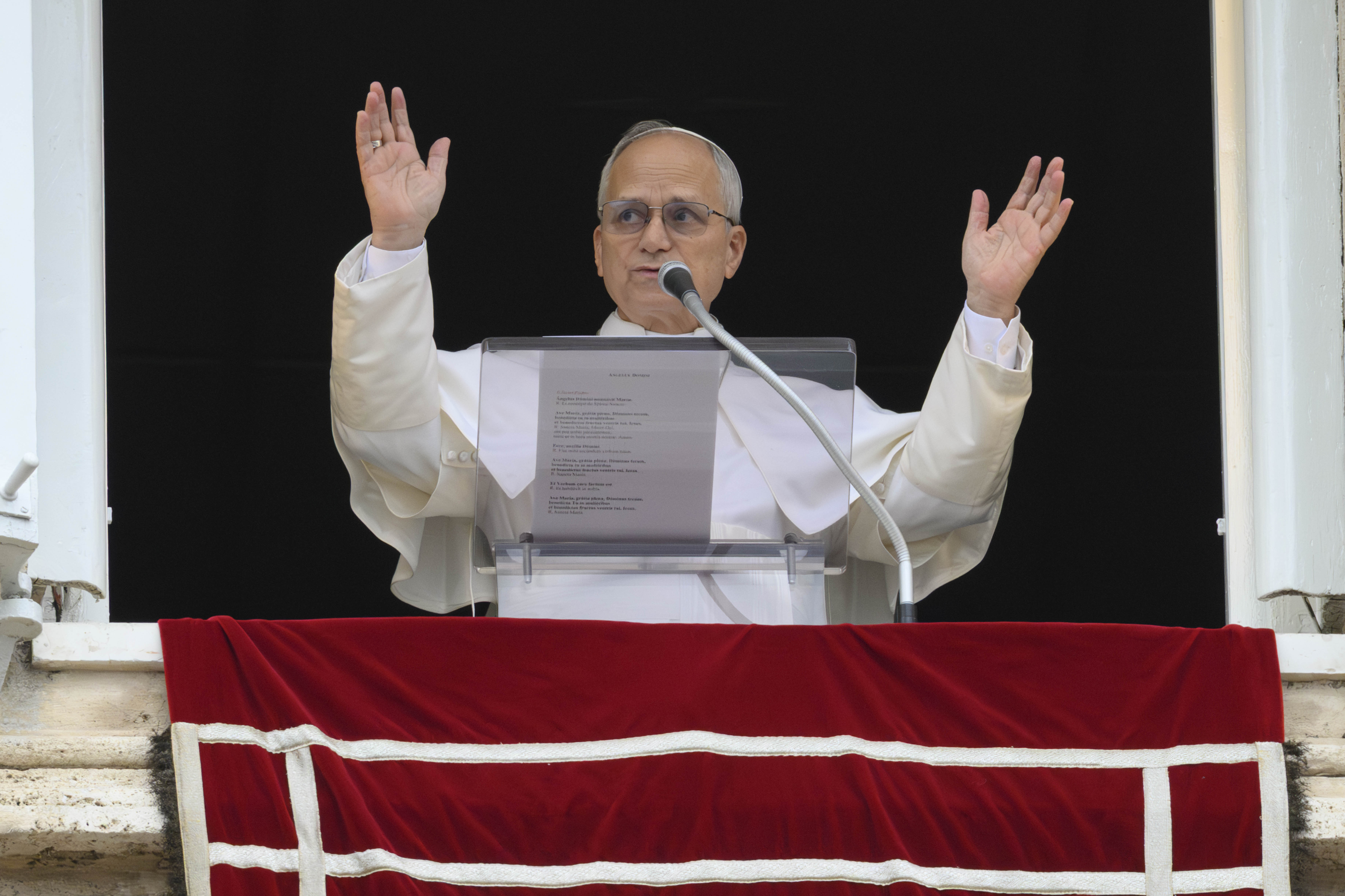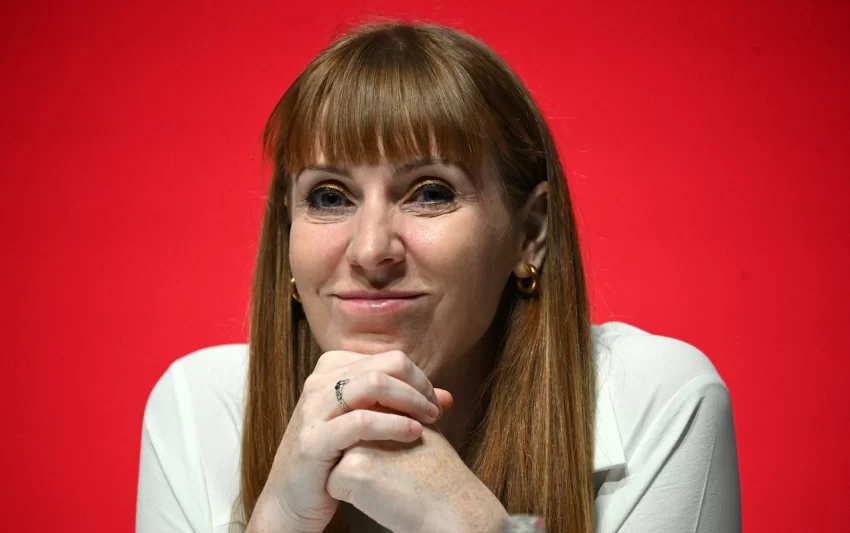Britain’s universities feel the heat of its migration culture war
LONDON — Thought writing a 10,000-word dissertation was tricky? Try managing Britain’s embattled university sector.
As students pack their bags, sort their kitchenware and prepare for the time of their lives at campuses across the U.K., university officials face the headache of keeping their struggling institutions economically viable — all while politicians take potshots at them.
“The underlying financial settlement for universities is not really sustainable,” warned Universities UK International Director Jamie Arrowsmith, an organization representing 141 universities.
International students provide significant income to the sector by paying considerably higher tuition fees than domestic students. However, Labour’s bid to slash migration levels means international students are in the firing line.
It’s a stark contrast from Tony Blair’s New Labour government in the 2000s, which was “actively encouraging the growth of the international student population,” according to Labour peer and former Universities Minister Margaret Hodge.
She recalled writing to Blair espousing how this expansion would increase the U.K.’s soft power: “If you wanted to create good diplomatic connections and promote peace across the world, those student relationships paid off fantastically.”
A string of policy changes has left institutions searching elsewhere for cash, as Prime Minister Keir Starmer focuses on disadvantaged British youngsters.
A white paper due this fall will outline specific higher education reforms, including calls for universities to contribute more to economic growth. The sector warns it could all be undermined if the government keeps discouraging overseas students from coming to Britain.
Pulling up the ladder
Britain’s universities have an enviable reputation. The QS World University Rankings in June put 17 U.K. universities in the top 100, while a London Economics report calculated higher education contributed more than £265 billion in the 2021/22 academic year.
It’s little wonder students across the globe want to study here.

But while international students starting in 2021/22 brought net economic benefits of £37.4 billion, they’re also counted in immigration figures — and that’s a headache for the government.
Anxious about populist parties like Reform UK, Tory and Labour administration have seen fewer foreign students as a way to get numbers down.
They were banned from bringing family members on all but post-graduate research routes back in January 2024. That decision by then-Conservative PM Rishi Sunak followed 135,788 visas being granted to dependents of foreign students in 2022, nearly nine times the 2019 figure.
Arrowsmith said he understood why the policy was introduced, but warned it had hit “the U.K.’s attractiveness” to prospective foreign students, particularly when “other countries have had more open and welcoming policies over the last three to four years.”
Home Office figures in October 2024 showed the effect — with an 89 percent drop in visa applications for dependents between July to September 2023 and the same period in 2024.
Tory peer and former Universities Minister, David Willetts, said he understood concerns about dependents, but thought it should be made clearer to voters that students are only temporary migrants.
“My constituents, when I was an MP, who worried about migration, were worried about [people] coming to Britain to settle, to use the NHS,” he said. “They weren’t worried about a Chinese student doing physics for a couple of years.”
Fellow Tory peer and former Universities Minister Jo Johnson concurred, saying people were more concerned with illegal immigration. “They’re a very special category of immigration that’s more akin to tourism or temporary visitors.”
Now, Labour is wearing Conservative clothing.
The Home Office marked the new academic term this week by directly contacting tens of thousands of foreign students, warning them not to outstay their visas and telling them they “must leave” if they have “no legal right to remain.”
The immigration white paper published this May also planned to reduce the graduate visa — where international students can remain in the U.K. after finishing their qualification — from two years to 18 months in most cases.
Ministers have also mooted a levy on fees universities receive from foreign students to reinvest in domestic training.

Johnson, however, said the Treasury didn’t like raising money for a specific purpose, meaning the Department for Education “may be being rather optimistic” in assuming revenue would go towards skills.
Hodge was similarly sceptical: “If it were linked to encouraging international students, but recognizing there might be a cost to public services, I think I’d feel more comfortable,” she said. “At the moment, I’m not sure that it’s anything else other than raising more money.”
The moves have also upset the main higher education union.
“Unfortunately, the government remains wedded to a funding model that leaves international students propping up U.K. higher education,” said University and College Union (UCU) General Secretary Jo Grady in a statement to POLITICO.
She added: “Their fees are essential to the financial stability of the sector, so it is economically illiterate that Labour has refused to lift the Tories’ visa restrictions.”
Strapped for cash
Though Education Secretary Bridget Phillipson insisted the government will “always welcome international students where they meet the requirements to study,” some have taken the hint — and given the U.K. a pass.
In 2023/24, 732,285 overseas students studied at U.K. higher education providers, a 4 percent drop from the 2022/23 record high and the first fall since 2012/13. The number of student visas granted also fell from its record in 2022 of 484,000 by 5 percent in 2023 and 14 percent in 2024.
The drop-off was particularly acute among EU students. After Brexit, European students weren’t eligible for home student status, meaning they paid international fees and couldn’t acquire a student loan.
This led to a 50 percent drop in accepted applicants for U.K. undergraduate study from EU countries in 2021/22, which continued to fall the following two years.
Universities still need to pay their bills.
In 2022/23, U.K. higher education providers had an income of £50 billion, of which 52 percent came from tuition fees — international students paid 43 percent of that figure.
The decline “has … been increasingly difficult,” said Arrowsmith, stressing “one of the main sources of funding that was helping to mitigate the reduction in resource is … no longer quite as stable.”

While international fees rose without any cap, domestic tuition fees were frozen from 2017 until this fall at £9,250. Despite rising to £9,535, the hike in employers’ national insurance contributions hampered extra savings — forcing universities to tighten their purse strings.
A Universities UK survey of 60 institutions in May found 49 percent closed courses to reduce costs, up from 24 percent in spring 2024. In the same month, the Office for Students, which regulates higher education, forecast a third consecutive year of financial decline in 2024/25.
“Inflation has been particularly high,” argued Arrowsmith, “That really exacerbated the situation,” particularly when there were “increased expectations” on academic research.
It’s little surprise the House of Commons’ Education Committee is investigating potential insolvency within higher education institutions.
The Department for Education reiterated that the independence of universities meant they must ensure sustainable business models. But Willetts and Hodge disagreed on whether increasing domestic fees would improve the situation.
Willetts “would love to see a healthy, proper increase in the fees” to put universities “in a stronger position” rather than relying on overseas students.
However, Hodge said the “incredibly expensive” university experience was “almost getting to the cost of going to bloody Eton” and the debt was “putting working-class kids off.”
Out of the ivory towers
To show young people university isn’t their only option, the government launched Skills England and funded a growth and skills levy supporting apprenticeships.
But universities don’t think this should come at the expense of international students.
And it seems the public agrees. British Future research found 54 percent of people thought international students enhanced the reputation of U.K. universities overseas, while 61 percent thought the government should increase or keep the amount of overseas students the same.
Domestic students were supportive, too. “British students appreciated the opportunity of studying with students from other countries,” said Willetts. “It enriched the experience.”
Education wonks believe focusing too much on domestic skills could come back to bite ministers — and excessive policy changes prevents what international students, and employers, want most of all: clarity.
“They need certainty and stability if they’re going to make decisions,” argued Arrowsmith, stressing frequent alterations under different administrations made “prospective students think twice [about Britain] as a destination.”
The UCU echoed this and felt Britain should be open for business.
“We are also calling on universities to join us in the fight for a more open border policy that will protect the sector, help contribute tens of billions of pounds to the economy, enrich our society and bolster the U.K.’s global standing,” said Grady.
A government spokesperson said: “We recognize the valuable contributions which genuine international students make to the economy and the university sector and we want them to continue to come to the U.K.”
But they argued: “We are simply tightening the rules so those wishing to stay in the U.K. must find a graduate-level job within 18 months, which is fair for both students and to British workers and taxpayers.”




















:quality(85):upscale()/2023/09/18/918/n/1922398/a1136b676508baddc752f5.20098216_.jpg)
:quality(85):upscale()/2025/10/09/670/n/1922283/00b944c868e7cf4f7b79b3.95741067_.jpg)
:quality(85):upscale()/2025/10/15/765/n/1922398/29c37a6e68efd84bb02f35.49541188_.jpg)
:quality(85):upscale()/2025/09/09/891/n/1922283/7222624268c08ccba1c9a3.01436482_.png)
















